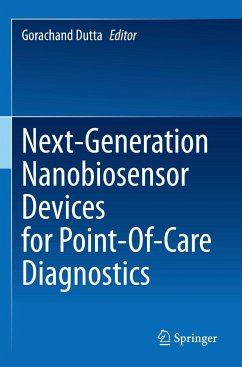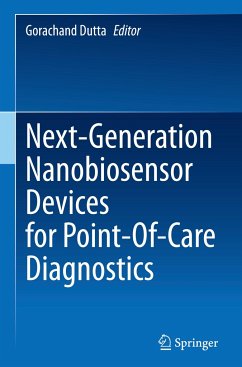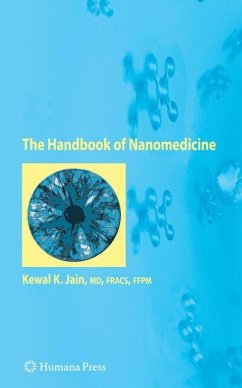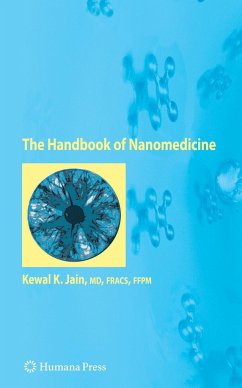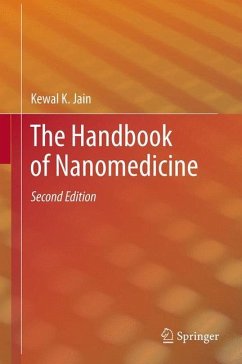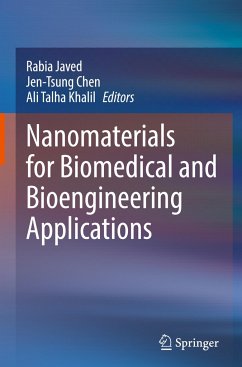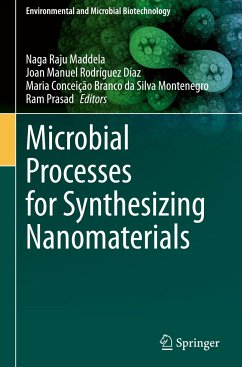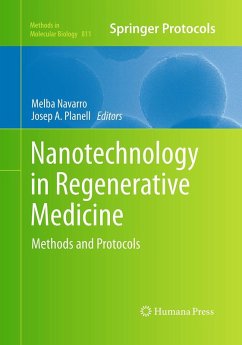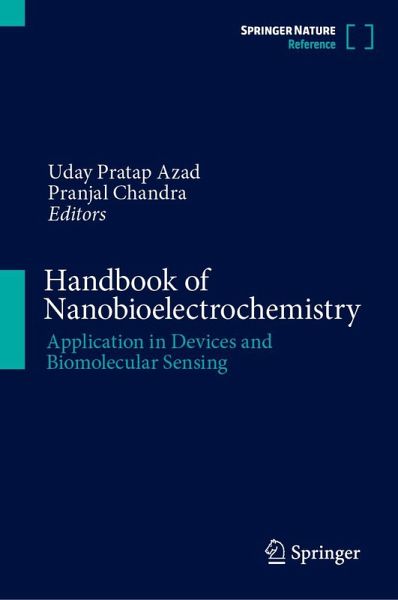
Handbook of Nanobioelectrochemistry
Application in Devices and Biomolecular Sensing
Herausgegeben: Azad, Uday Pratap; Chandra, Pranjal
Versandkostenfrei!
Versandfertig in 1-2 Wochen
496,99 €
inkl. MwSt.

PAYBACK Punkte
248 °P sammeln!
This handbook comprehensively reviews different nanomaterials and modern electrochemical approaches used in the point-of-care analysis of biomolecules. It describes the importance, significance, and application of various kinds of smart nanomaterials and their integration with modern electrochemical techniques for the point-of-care diagnosis of biologically important biomolecules. The interaction between bio-systems and nanomaterials have been discussed in this book using advanced electrochemical methods and characterizing techniques. It describes the combination of classical and modern method...
This handbook comprehensively reviews different nanomaterials and modern electrochemical approaches used in the point-of-care analysis of biomolecules. It describes the importance, significance, and application of various kinds of smart nanomaterials and their integration with modern electrochemical techniques for the point-of-care diagnosis of biologically important biomolecules. The interaction between bio-systems and nanomaterials have been discussed in this book using advanced electrochemical methods and characterizing techniques. It describes the combination of classical and modern methodologies for the synthesis of metal nanoparticles/nanoclusters and modern electrochemical techniques for the early-stage detection and point-of-care diagnosis of cancer and other infectious disease such as SARS, influenza, tuberculosis (TB), and hepatitis.
Finally, the book provides an accessible and readable summary of the use of nanomaterial for understanding the electrochemical reaction taking place at nano-bio interfaces in electrochemical biomolecular detection and analysis. The book bridges the gap and strengthens the relationship between electrochemists, material scientists, and biomolecular scientists who are directly or indirectly associated with the field of such point-of-care diagnostics.
Finally, the book provides an accessible and readable summary of the use of nanomaterial for understanding the electrochemical reaction taking place at nano-bio interfaces in electrochemical biomolecular detection and analysis. The book bridges the gap and strengthens the relationship between electrochemists, material scientists, and biomolecular scientists who are directly or indirectly associated with the field of such point-of-care diagnostics.




